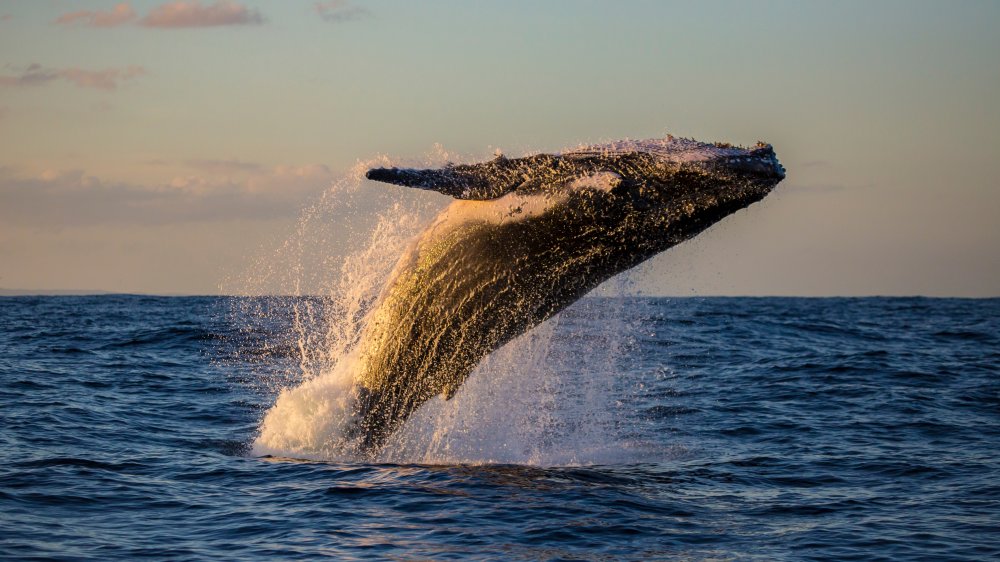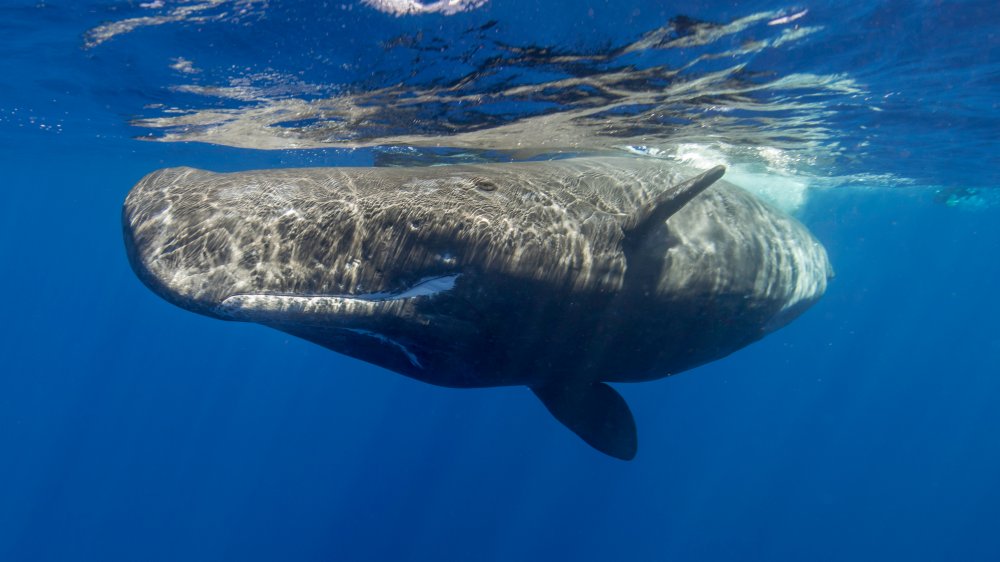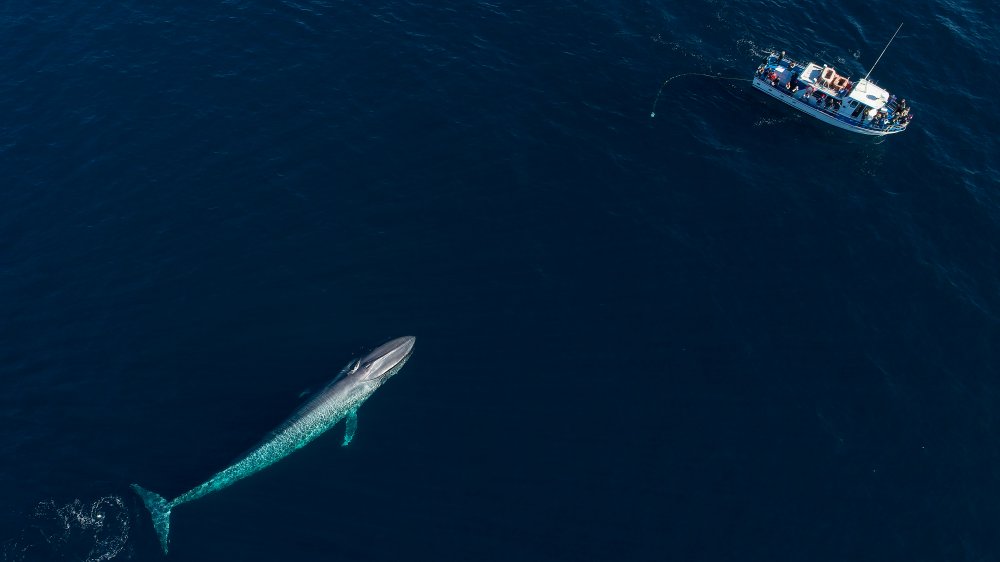What Would Happen To The Ocean If There Were No Whales?
If whales didn't exist, Jonah might have had to spend three days in the belly of an obese goldfish, which sounds super cramped. And just imagine if Captain Ahab had chased, say, a tuna instead of an unstoppable sperm whale in Moby Dick. "Towards thee I roll, thou all-destroying but unconquering chicken of the sea" just doesn't have the same epic ring to it as "whale." But even if those changes seem minor, if these gargantuan animals vanished from existence, the world would be in much worse shape.
The environment would become even more unfriendly
Moby Dick didn't just wreck the Pequod. This questionably named leviathan was likely a huge boon for the environment, thanks to his fruitful booty — or whatever passes for a whale's butt. Reuters reports that "Southern Ocean sperm whales offset their carbon footprint by defecating." Their aqua dumps have loads of iron, which helps plankton grow. The plankton, in turn, use the carbon dioxide that whales inhale, converting it to energy during photosynthesis.
A single sperm whale unloads about 50 tons of poop annually, and their waste absorbs twice as much carbon as the whales exhale. The 12,000 whales estimated to live in the Southern Ocean in 2010 led to the absorption of about 400,000 tons of carbon. Were it not for whaling, the animals might have removed 2 million tons of carbon from Earth's atmosphere. In other words, sperm whales fight climate change without trying.
In fact, according to Scientific American, whales could help humans on Pacific Islands "meet the reductions to their nationally determined contributions (NDCs) of greenhouse gases framed in the Paris Agreement." They not only do this through, well, dooing, but by diving, which moves nutrients to where plankton can use it. So if the whale population dwindled to zero, that would result in boatloads more carbon remaining in the atmosphere.
It might break the food chain
Everyone knows that Willy wasn't truly free until death. For when a whale dies, its soul passes through the blowhole and ascends to the big blue heaven in the sky. Meanwhile, its massive body becomes a sumptuous gift for all the sea creatures that eat dead behemoths. According to the Natural History Museum at Tring, a single whale carcass can feed a whole ecosystem. Bacteria, gigantic scavengers, and other aquatic blobs eat that meat. So-called "bone-eating zombies" feast on the skeleton. A dead whale can provide a 10-year supply of seafood, and as Science Mag points out, whales also contribute to the spread of nutrients on land. If they die out the circle of life might die, too.


